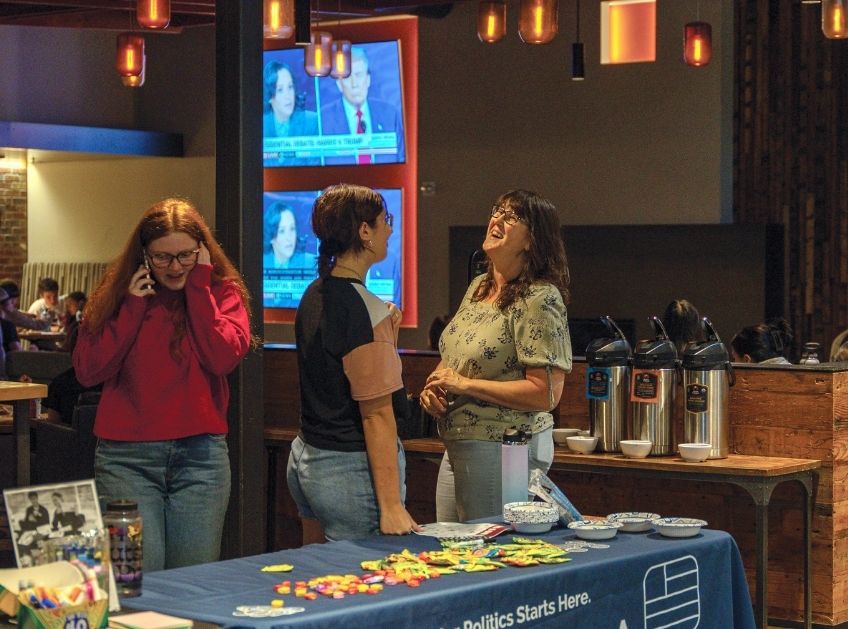FALL 2024
Dialogue Across Difference
UP’s newly created Center for Constructive Dialogue seeks to bolster communication skills that encourage connections in divisive times.

Anne Santiago, right, co-hosted a presidential debate watch party as part of a new effort to create a culture of open dialogue across campus. Photo credit: Natalie Gordon
LAST SEMESTER, Anne Santiago, associate professor of political science and global affairs, initiated a weekly brown-bag discussion group for students. She called it “Lunchtime Insights: Digesting Current Affairs.” Local, national, global topics—any issue students were interested in or perplexed by—were all on the table, and rotating faculty members were there to support and guide and ask questions, without any particular agenda in mind. The main goal was to “regularize open dialogue,” to provide supporting materials, to practice speaking to people who may have different views than you, and to interrogate “how do we come to the views we come to?”
Now, Santiago has been appointed by the provost as University of Portland’s first Dundon-Berchtold Fellow of Constructive Dialogue, and she is hoping to broaden the culture of “dialogue across difference” on campus. And no better time than a heated election season to work toward that goal.
Santiago’s scholarship has focused on intergroup dialogue and conflict studies. Before teaching at UP, she worked in a conflict management role at National University of Rwanda through USAID, a position that began five years after the country’s 1994 genocide. “If we can get people to engage after horrific injustice, then we can talk to each other here on things we disagree on,” she said.
And she believes that college campuses are a great place to work on this skill. “We’ve done a great job of creating affinity groups on campus,” Santiago said, “but not as great at getting these groups talking to each other, engaging in dialogue.”
This fall she has teamed up with the Vote UP and Bridge UP groups in student affairs, along with the Civic Humanities Working Group, to encourage student participation in the democratic process. She co-hosted presidential and vice presidential debate watch parties, with bingo cards for things they anticipated candidates might say during the debate, and then she stuck around afterward for anyone who had questions or who just wanted to talk anything through. If the turnout at the presidential debate watch party in September is any indication—there were at least 250 students, faculty, and staff in attendance at various points inside the Pilot House, not including the crowd listening outside—then the UP student body is poised to engage.